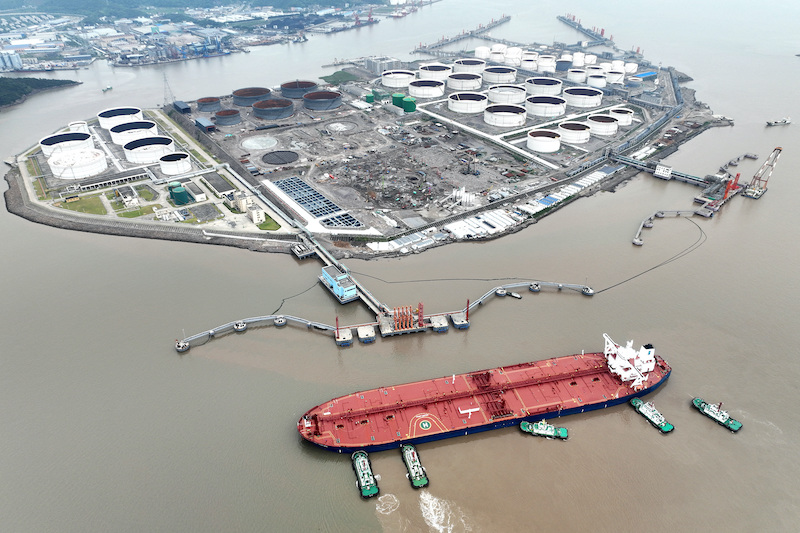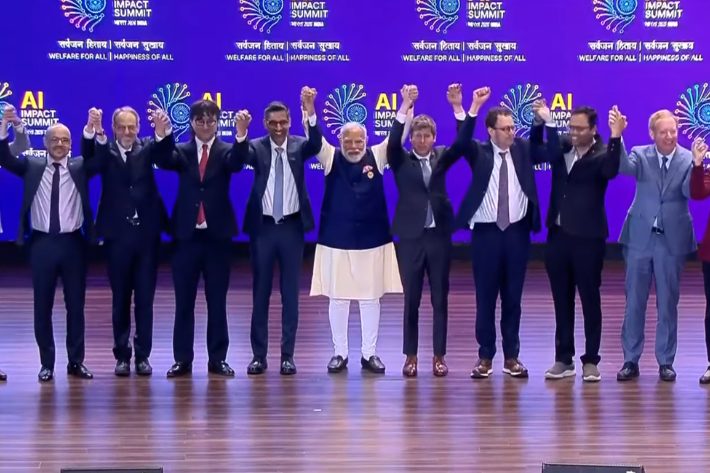China has saved nearly $10 billion this year thanks to record purchases of oil from countries under Western sanctions, according to Reuters’ calculations based on data from traders and shiptrackers.
An unintended consequence of sanctions imposed by the United States and others on Russia, Iran and Venezuela has been to lower the oil import costs for refiners in top economic rival China, which often criticises such “unilateral” penalties.
Reuters’ analysis of China’s savings on oil purchases from the three sanctioned countries compares what Chinese importers would have paid by purchasing similar grades from non-sanctioned producers.
The lower-priced imports have been a boon by bolstering throughput and margins for the world’s second-largest oil consumer and refiner, especially small independent operators known as “teapots”, and facilitating lucrative exports by state-owned refiners of diesel and gasoline as the country faces economic headwinds.
Also on AF: Typhoons, Landslides, Sandstorms Cost China $42bn This Year
China’s purchases are also a revenue lifeline for Moscow, Tehran and Caracas, whose economies are otherwise curtailed by Western sanctions and a decline in investment.
China shipped in a record 2.765 million barrels per day (bpd) of crude by sea from Iran, Russia and Venezuela in the first nine months of 2023, according to an average of data provided by tanker trackers Vortexa and Kpler.
The three countries accounted for a quarter of China’s imports between January and September, up from about 21% in 2022 and double the 12% share in 2020, Reuters’ analysis found, displacing alternatives from the Middle East, West Africa and South America.
While the savings are a fraction of China’s oil import bill, they matter for independent refiners that are “opportunistic buyers and actively look for bargains”, said Kang Wu, global head of demand research at S&P Global Commodity Insights.
China’s Foreign Ministry did not respond to specific questions sent by Reuters. Instead, in a statement, it repeated its stance that Beijing opposes unilateral sanctions and China’s normal trade deserves respect and protection.
From January to September, Russia supplied 1.3 million bpd of seaborne crude, based on the average of data supplied by Vortexa and Kpler. China also imported about 800,000 bpd of ESPO crude via pipeline, according to Chinese trading sources.
The seaborne imports are mainly ESPO shipped from Russia’s Pacific port of Kozmino as well as Urals from the Baltic Sea.
Russian, Venezuelan, Iranian Oil Savings
From January to September, total Russian shipments grew by over 400,000 bpd from a year earlier, led by Urals, according to Vortexa, as sanctions triggered by Moscow’s invasion of Ukraine sparked a massive diversion of its oil flows from Europe to India and China.
China has this year saved $4.34 billion by importing Russian oil, based on Reuters’ comparison of the monthly price differentials between ESPO and Tupi crude from Brazil, and Urals versus Oman, using price information provided by traders.
For imports of Venezuelan oil, mostly heavy grade Merey, China saved an average of $10 a barrel versus comparable Colombian Castilla crude, the calculations based on the trader data showed. The country saved roughly $15 a barrel buying Iranian crude versus Oman oil.
China has saved roughly $4.2 billion by importing a record 1 million bpd during the same period from Iran, 60% above pre-sanction peaks recorded by Chinese customs in 2017 at 623,000 bpd, as Tehran raised output to near-maximum levels and offered discounts as steep as $17 a barrel versus Brent.
By comparison, Oman averaged a $2 premium above Brent in the first nine months of this year.
With January-September inflows of Venezuelan oil at around 430,000 bpd, according to the average of the Vortexa and Kpler data, China’s savings from buying Venezuelan oil was $1.17 billion.
A US State Department spokesperson said in a statement price caps on Russian oil let buyers “drive a harder bargain” in their purchases, limiting Moscow’s revenue.
Since 2021, the US has sanctioned over 180 individuals and entities dealing Iranian oil and petrochemicals and the impact of sanctions has caused hyperinflation in Iran and its currency to plunge, the spokesperson said.
‘Teapots’ Take Advantage
US sanctions enforcement will continue for Venezuela and the Maduro government’s relationship with China does not demonstrate strength but its isolation “within the global community.”
With state refiners Sinopec and PetroChina refraining entirely from buying Iranian and Venezuelan crude, teapots have feasted on discounted oil from the two suppliers.
According to Chinese consultancy JLC, teapots in the refining hub of Shandong province operated at 65.7% of capacity during the first three quarters of 2023, up 4.2 percentage points, generating margins on processing imported crude of 567 yuan ($77.63) per ton, compared with 50 yuan a year ago.
However, the upside for more cost savings is capped as teapots are constrained by crude import quotas, while holding no fuel export quotas, as well as regulatory scrutiny.
“This is especially true for Shandong refiners which, if subjected to another round of crackdowns as seen over the past years, could put a hard limit on how much Iran exports,” said Viktor Katona, Kpler’s lead crude analyst.
Earlier this year, customs stepped up inspections of heavy crude cargoes headed to Shandong after finding several Iranian shipments mislabelled as diluted bitumen to bypass import quotas.
If the US tightens enforcement of sanctions on Tehran over the recent crisis in Israel, that could also curb Iran’s oil exports, analysts said, which mostly flow to China.
- Reuters with additional editing by Sean O’Meara
Read more:
‘Pop-up’ Traders Shipping Half Russia’s Oil to China and India
China, India Imports of Russian Oil Surge to Record Highs
Russia Ships Sanctioned Oil to Asia in Chinese Supertankers
Russia Sends Increasingly Cheap Arctic Oil to India, China
























